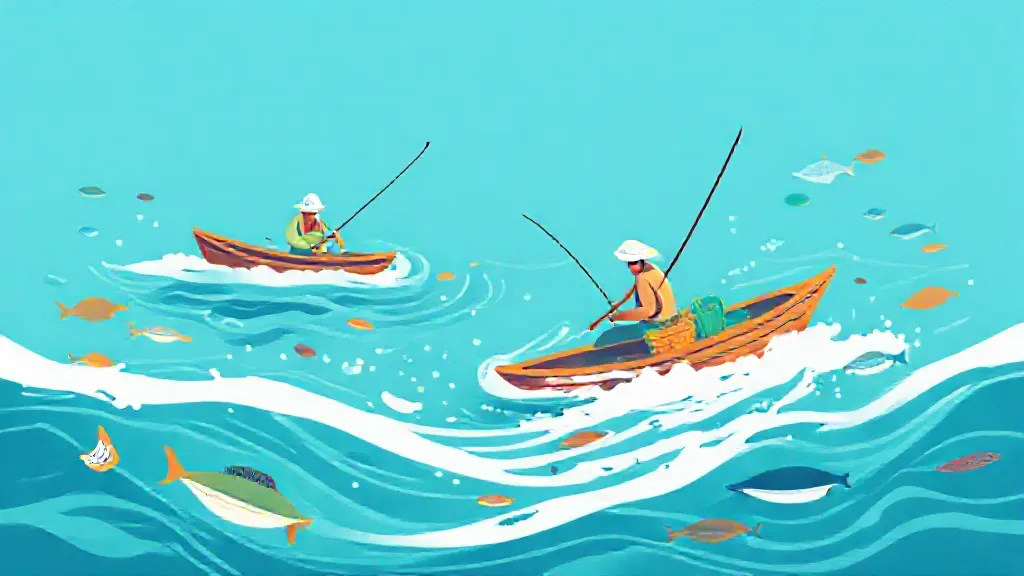Sustainable fishing is a critical practice that addresses the pressing need to maintain the health and biodiversity of our oceans. As global populations increase and demand for seafood rises, unsustainable fishing practices have led to significant declines in fish populations, disrupted marine ecosystems, and threatened the livelihoods of communities dependent on fishing. Understanding the necessity of sustainable fishing is vital for ensuring the long-term viability of ocean resources and the overall health of our planet.
The Impact of Overfishing on Marine Ecosystems
Overfishing occurs when fish are caught at a rate faster than they can reproduce, leading to a depletion of fish stocks. This not only threatens the species being fished but also disrupts the entire marine ecosystem. For instance, the decline in predatory fish like sharks can lead to an overpopulation of their prey, which in turn affects the balance of the ecosystem.
The collapse of fish populations can have cascading effects, altering habitats and reducing biodiversity. Historical examples, such as the collapse of the Atlantic cod fishery in the early 1990s, illustrate the severe consequences of overfishing, resulting in economic hardship for fishing communities and loss of marine biodiversity.
The Role of Sustainable Fishing Practices
Sustainable fishing practices aim to maintain fish populations at healthy levels while minimizing environmental impacts.
This includes methods such as catch limits, seasonal closures, and gear restrictions that reduce bycatch—the unintentional capture of non-target species. By implementing these practices, fisheries can ensure that fish populations remain stable and that ecosystems are preserved. For example, the use of selective fishing gear can help protect juvenile fish and non-target species, allowing them to grow and reproduce.
Furthermore, sustainable fishing supports the livelihoods of local communities by ensuring that fish stocks remain available for future generations.
The Economic Benefits of Sustainable Fisheries
Beyond environmental considerations, sustainable fishing practices also offer economic advantages. The global seafood market is worth hundreds of billions of dollars, and sustainable fisheries can provide a steady supply of seafood that meets consumer demand while protecting marine resources.
Certification programs, such as the Marine Stewardship Council (MSC), promote sustainable practices and help consumers make informed choices. Fishery certification can lead to higher prices for sustainably caught seafood, benefiting both fishers and consumers. By investing in sustainable fishing, communities can create a resilient economy that relies on healthy ocean resources.
The Importance of Marine Protected Areas
Marine Protected Areas (MPAs) play a crucial role in supporting sustainable fishing by providing safe havens for fish populations to recover and thrive. MPAs restrict certain activities, such as fishing or mining, allowing ecosystems to regenerate. Studies have shown that MPAs can lead to increased fish biomass and biodiversity, which in turn benefits surrounding fisheries.
For instance, the Great Barrier Reef Marine Park in Australia has demonstrated that well-managed MPAs can support sustainable fishing while preserving marine biodiversity. Expanding MPAs globally is essential for enhancing ocean resilience and promoting sustainable fishing.
Community Involvement and Education
Engaging local communities in sustainable fishing practices is vital for their success.
Education and awareness campaigns can empower fishers to adopt sustainable methods and understand the long-term benefits of preserving marine resources. Community-based management approaches, where local fishers have a say in the regulations that affect their livelihoods, have proven effective in many regions. For example, in the Philippines, local fishing communities have successfully implemented sustainable practices that have led to increased fish populations and improved economic conditions.
The Role of Technology in Promoting Sustainability
Advances in technology are also playing a significant role in promoting sustainable fishing. Innovations such as satellite tracking, drones, and artificial intelligence are being used to monitor fish populations and fishing activities. These tools can help enforce regulations and ensure compliance with sustainable practices.
Additionally, technology can enhance fishery management by providing real-time data on fish stocks and environmental conditions. By leveraging technology, the fishing industry can move towards more sustainable practices that protect ocean health.
Global Cooperation for Sustainable Fishing
Finally, addressing the challenges of sustainable fishing requires global cooperation.
International agreements, such as the United Nations Fish Stocks Agreement, aim to manage shared fish stocks and promote sustainable practices across borders. Collaborative efforts between governments, NGOs, and the private sector are essential for developing effective policies and practices that support sustainable fishing. By working together, nations can ensure that fish populations are managed sustainably, benefiting both the environment and the economy.
In conclusion, sustainable fishing is not just a choice; it is a necessity for the health of our oceans and the well-being of future generations. By understanding the impacts of overfishing, embracing sustainable practices, and fostering community involvement, we can work towards a future where our oceans thrive and continue to provide for humanity. Sustainable fishing is essential for preserving marine biodiversity, supporting local economies, and ensuring that our oceans remain healthy and productive for years to come.
